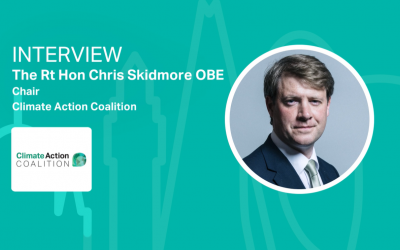TPI publishes new report identifying sectoral decarbonisation pathways for all high emitting sectors
TPI’s decarbonisation pathways allow investors to assess the credibility of corporate commitments to net zero and alignment with the Paris Agreement goals.

TPI’s decarbonisation pathways allow investors to assess the credibility of corporate commitments to net zero and alignment with the Paris Agreement goals.
TPI’s report provides the definitive framework for assessing corporate climate targets in 10 key high emitting sectors within energy, transport and industrials.
The investor-backed benchmark pathways and methodologies are used by the Climate Action 100+ and many significant global asset owners and managers.
For example, the report states that companies in the aviation sector must have an emission intensity below 616 tonnes of CO2/RTK by 2030, in order to be aligned with a 1.5 degree path.
This high level of detail allows investors to assess the target-setting of companies and hold companies accountable when their real-world annual emissions are reported.
Simon Dietz, Research Lead for TPI at the Grantham Research Institute on Climate Change and the Environment at LSE, said: “In order to allow investors to see whether a company’s emission reduction plans align with the goals of the Paris Agreement, TPI has translated IEA models into decarbonisation pathways for each sector.”
“This report explains our methodology in an accessible way. We hope this report catalyses the real economy transition plans that we urgently need to avoid the most catastrophic effects of global warming. It is now time to turn commitment into action.”
A key feature of the TPI decarbonisation pathways include sector-specific methodologies allocating an absolute, economy-wide emissions budget to each sector.
The pathways also have sectoral benchmarks, derived from IEA modelling, and TPI benchmarks for most of lifecycle emissions in each sector.
These benchmarks extend to 2050 to allow investors to see a company’s transition pathway across the short, medium, and long term.
In almost every sector, the report normalises company emissions against a physical activity output to allow for comparison between companies.
The benchmarks and methodologies are available for everyone and can be adapted to new models or scenarios.
Adam Matthew, Chair, Transition Pathway Initiative, and Chief Responsible Investment Officer, Church of England Pensions Board said: “TPI’s sectoral decarbonisation pathways meet the demand from all stakeholders – investors, companies, civil society organisations – for a credible, rigorous framework for assessing corporate climate change performance.”
“They are recognised by investors as the authoritative translation of the IEA’s scenarios into credible performance benchmarks for industry sectors and for individual companies.”






